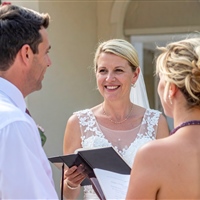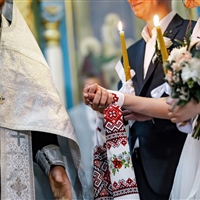
Preparing for your wedding? Discover what vital details your marriage celebrant will need to create a smooth and unforgettable ceremony. Get ready with this essential guide! 💍
Planning a wedding involves many details, and one of the most important aspects is working with your marriage celebrant. Your celebrant plays a crucial role in making your wedding day legally binding and memorable. To ensure that your ceremony goes smoothly, your celebrant will need certain information from you. Here’s a guide to the key details your marriage celebrant will ask for.
1. Personal Information Your celebrant will require personal information for both the bride and groom, including:
- Full Names: The full legal names of both parties, as they appear on official documents.
- Date of Birth: This helps confirm that both individuals are of legal age to marry.
- Place of Birth: The country and city where each party was born.
- Current Address: The residential address of both individuals.
This information is necessary to complete the legal paperwork required for your marriage.
2. Proof of Identity Your celebrant will need to verify your identity. This typically involves providing:
- Passports or Driver’s Licenses: A valid form of photo identification for both parties.
- Birth Certificates: Some jurisdictions may require birth certificates to verify age and identity. If you’ve changed your name, you may also need to provide legal documentation, such as a deed poll.
3. Previous Marriages or Legal Partnerships If either of you has been married before or has been in a legal partnership, your celebrant will ask for:
- Divorce Decree Absolute: Proof that the previous marriage has been legally dissolved.
- Death Certificate: If a previous spouse has passed away, a death certificate will be required. This information ensures that both parties are legally free to marry.
4. Witness Information For your marriage to be legally recognised, you’ll need witnesses present at your ceremony. Your celebrant will ask for:
- Names of Witnesses: You’ll need to provide the full names of two witnesses.
- Contact Information: Their contact details may also be required in some jurisdictions.
Witnesses must be over the age of 18 and understand the nature of the ceremony they are witnessing.
5. Ceremony Preferences Your celebrant will work with you to create a ceremony that reflects your values and preferences. They’ll ask about:
- Vows: Whether you’ll be writing your own vows or using traditional ones.
- Readings or Music: Any specific readings, poems, or music you’d like included in the ceremony.
- Rituals or Traditions: Any cultural or religious rituals you want to incorporate.
This discussion helps the celebrant tailor the ceremony to your unique relationship and values.
6. Ceremony Location and Timing Details about the ceremony location and timing are essential for the celebrant’s planning:
- Venue: The exact location of the ceremony, whether it’s a church, outdoor setting, or another venue.
- Date and Time: The specific date and time when the ceremony will take place. Ensure that your celebrant is aware of any specific logistics related to the venue, such as access requirements or sound systems.
7. Legal Documents and Fees Your celebrant will handle the legal paperwork required for your marriage. They will ask for:
- Notice of Intended Marriage (NOIM): This form must be lodged with your celebrant at least one month before the wedding.
- Marriage License: Depending on your location, you may need to apply for a marriage license. Your celebrant can guide you through this process.
- Payment: The celebrant’s fee for their services, which may vary depending on the complexity of the ceremony and location.
8. Special Requests or Considerations If you have any special requests or considerations, it’s important to discuss them with your celebrant. This could include:
- Language Needs: If you require the ceremony to be conducted in a language other than English, or need a translator.
- Accessibility: Any specific needs related to accessibility for yourselves or your guests.
- Personal Touches: Anything else you want to include to make your ceremony unique and meaningful.
Final Thoughts
Providing your marriage celebrant with all the necessary information well in advance ensures that your ceremony runs smoothly and is legally recognised. By being prepared with the right details, you can focus on enjoying your special day without any last-minute stress. Communicate openly with your celebrant, and don’t hesitate to ask questions if you’re unsure about any part of the process. With the right preparation, your marriage ceremony will be a beautiful and memorable start to your life together.
Find the right Celebrant for you right HERE💍



